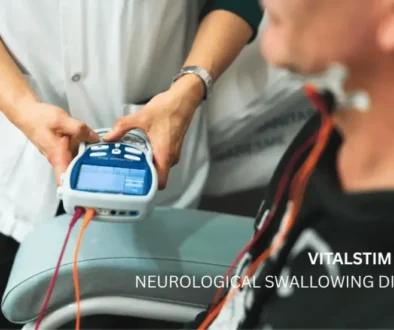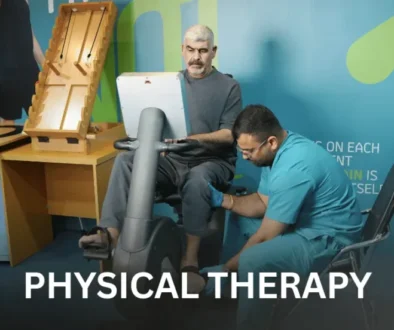Recognizing Early Warning Signs of Depression and Anxiety
Two of the most common mental disorders that hit people these days are depression and anxiety. They can hit anyone, at any age, gender, or background. It is necessary to recognize the early warning signs of depression and anxiety in order to receive proper help before the condition becomes serious. Early treatment really assists in managing these conditions as well as improving general well-being.
In this blog post, we’ll discuss the common symptoms to check for, why anxiety and depression are different, when to seek professional help, and the down-to-earth actions for early intervention. By learning this, you will know how to take ownership of your own mental health or the mental well-being of the person who may be in need.

Common Symptoms to Watch For
It can be hard to recognize the early signs of anxiety and depression because the symptoms are much alike. However, noticing some changes in behavior, mood, and body can signal potential issues.
Symptoms of Anxiety
- Excessive Worry: Constantly being nervous or anxious about something even when there is no reason to be.
- Restlessness: Inability to relax or feeling tense all the time.
- Physical Symptoms: Faster heart rate, sweating, trembling, or nausea
- Sleep Problems: Difficulty falling or remaining asleep due to racing thoughts or worries.
Depression Symptoms
- Persistent Sadness: Constant feelings of emptiness, hopelessness, or sadness most of the time.
- Loss of Interest: No pleasure anymore in things once enjoyed.
- Fatigue: Constant tiredness even with adequate sleep.
- Appetite Changes: Consumption of more or less food than normal, usually resulting in weight loss or gain.
- Inability to Concentrate: Trouble focusing or making decisions.
Remember that everyone gets anxious or depressed at times. But if these symptoms last for weeks or affect daily activities, it could mean there is something more serious going on.
Differences Between Anxiety and Depression
While depression and anxiety tend to go hand in hand, they are nonetheless two different diseases with different symptoms and ways of treatment. Getting to know them will enable you or someone close to you to get the proper assistance.
Anxiety
Anxiety is mainly characterized by excessive fear, worry, and nervousness. It often triggers physical complaints like a rapid heart rate, sweating, and tension in muscles. Anxiety can be triggered by specific situations, i.e., social situations or fears regarding one’s health, but it can also occur without any obvious reason.
Depression
Depression is chiefly described by intractable grief and inability to appreciate things formerly enjoyed. Depression has a tendency to affect mood, energy levels, and motivational ability. Hopeless and worthless ideas are most likely caused by depression rather than anxiety.
Overlapping Symptoms
Certain symptoms will be shared in both depression and anxiety, and it could be difficult to distinguish between them. Disturbed sleep, poor concentration, and fatigue, for example, are common to both conditions. In order to determine the most predominant symptoms will help decide the correct approach to the management of Anxiety and Depression.
When to Seek Professional Help
When signs of depression or anxiety persist for weeks or interfere with daily activities, it’s important to seek professional support. The longer these symptoms go untreated, the more challenging they may become.
- When symptoms persist for more than two weeks without improvement.
- Inability to function effectively at work, school, or home.
- Relying on substances like alcohol or drugs to cope with emotions.
- Experiencing thoughts of self-harm or suicidal ideation.
How Professionals Can Help
Mental health professionals such as therapists, counselors, and psychiatrists are trained to diagnose and treat depression and anxiety. They can provide a range of treatments, such as cognitive-behavioral therapy (CBT), medication, and lifestyle changes that facilitate better mental health.
Tips for Early Intervention
Practice Self-Care
Do things that relax and make you feel good, such as exercise, meditation, or a hobby. Caring for your body can have a positive impact on your mind.
Talk to Someone You Trust
Discussing your feelings with a friend, relative, or advisor may provide emotional support and counsel. Discussing your problems is most often the start of healing.
Seek Professional Assistance Early
If symptoms persist or worsen, do not delay in seeking the assistance of a mental health care professional. Early treatment is often more successful and can prevent long-term complications.
Learn More
Learning about anxiety and depression will help you to recognize signs and symptoms, and treatment. Information is a powerful tool when it comes to handling Anxiety and Depression.
Recognizing the early signs of anxiety and depression is the first step toward effective management and recovery. Understanding the symptoms, knowing the difference between anxiety and depression, and reaching out for help when needed empowers you to take control of your mental health journey.
Seeking help early can be life-changing if you or someone you care about is feeling anxious, overwhelmed, or depressed. Don’t wait until it becomes unmanageable – take action now.
At Kent Healthcare, we offer professional psychology consultations designed to help you navigate anxiety, depression, and other mental health challenges. Our compassionate experts are here to guide you toward a healthier, happier life. Contact us today to book your consultation and take the first step toward emotional well-being.
Book an appointment
Booking an appointment with our team of professionals is just a few taps away. Book now!


